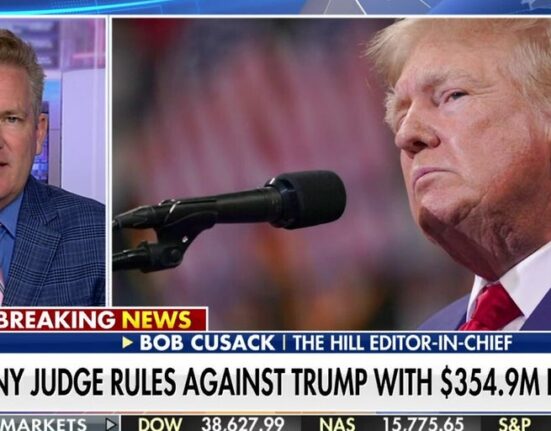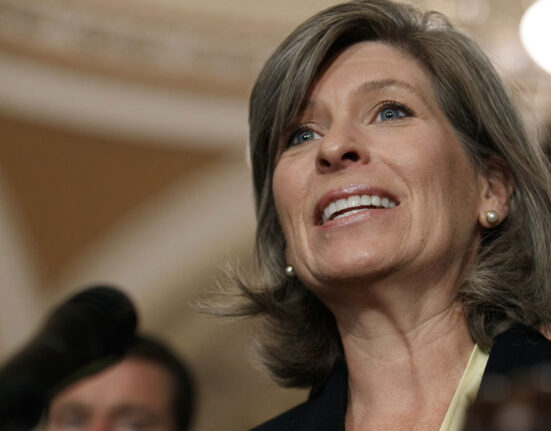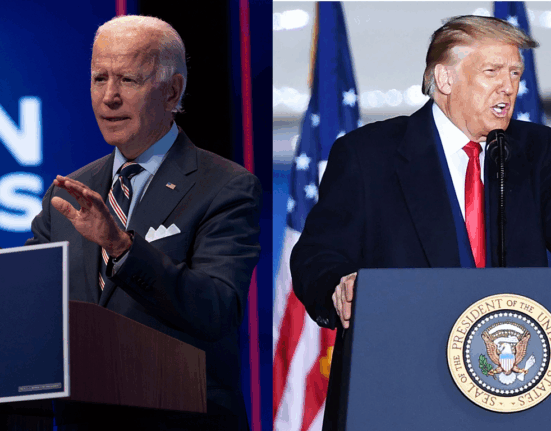A protester outside News Corp. headquarters in New York City raised a placard, highlighting the growing tension surrounding Medicaid cuts within the recent House Republican bill. The proposed legislation has become a key battleground for both parties as they gear up for the upcoming 2026 midterm elections.
Democrats are sharpening their criticism against the bill, labeling it a
“tax cut for the wealthy funded by cutting health care,”
contrary to Republicans’ earlier promises not to touch Medicaid. The Democratic Congressional Campaign Committee is strategically positioning Medicaid cuts as a central theme for the next election cycle, aiming to secure a House majority.
According to sources familiar with Democratic strategies, there is a concerted effort to portray the Republican bill as deceptive, emphasizing that it could potentially strip millions of people off Medicaid under the guise of addressing inefficiencies.
On the other side of the debate, Republicans are attempting to reframe their stance on Medicaid. The National Republican Congressional Committee is advising its members to promote the bill as an initiative aimed at strengthening Medicaid by ensuring it caters only to those deemed most in need.
The core dispute revolves around differing interpretations of what constitutes a Medicaid “cut.” While Republicans argue that benefits for low-income and disabled individuals are untouched, Democrats and critics assert that stringent new eligibility requirements could leave vulnerable populations without essential coverage.
Under the proposed legislation, recipients would have to meet strict criteria such as working or engaging in community service for at least 80 hours per month by 2026. Additional measures include verifying addresses more frequently and screening eligibility every six months rather than annually.
The Congressional Budget Office estimates that these changes could result in approximately $700 billion in cuts relative to current law and lead to around 8.6 million people losing their health coverage. Despite Republican efforts to emphasize work requirements supported by many voters, Democrats remain steadfast in denouncing what they see as detrimental effects on Medicaid recipients.
Responding to GOP arguments regarding work requirements, a DCCC spokesperson criticized House Republicans for attempting to divert attention from what they view as significant cuts impacting millions of Americans’ access to healthcare.
As Senate Republicans navigate internal divisions over aspects of the bill affecting Medicaid, there is growing pressure on lawmakers from various quarters. President Donald Trump’s endorsement of the House legislation further complicates matters given his stated reluctance towards cutting Medicaid despite supporting broader reforms.
Public opinion also plays a crucial role in shaping this debate. Surveys indicate mixed sentiments towards work requirements within Medicaid, with support wavering when confronted with potential consequences such as increased administrative costs and reduced coverage for those genuinely in need.
With both parties intensifying their messaging ahead of elections, strategic advertising campaigns have been launched targeting vulnerable incumbents over their positions on healthcare funding and tax policies. These initiatives underscore how pivotal healthcare issues like Medicaid can sway voter sentiment come election time.
Experts caution that while Democrats may possess strong historical narratives on healthcare reform akin to past successes during previous election cycles, they must adapt their messaging effectively this time around given evolving dynamics and shifting priorities among voters.









Leave feedback about this